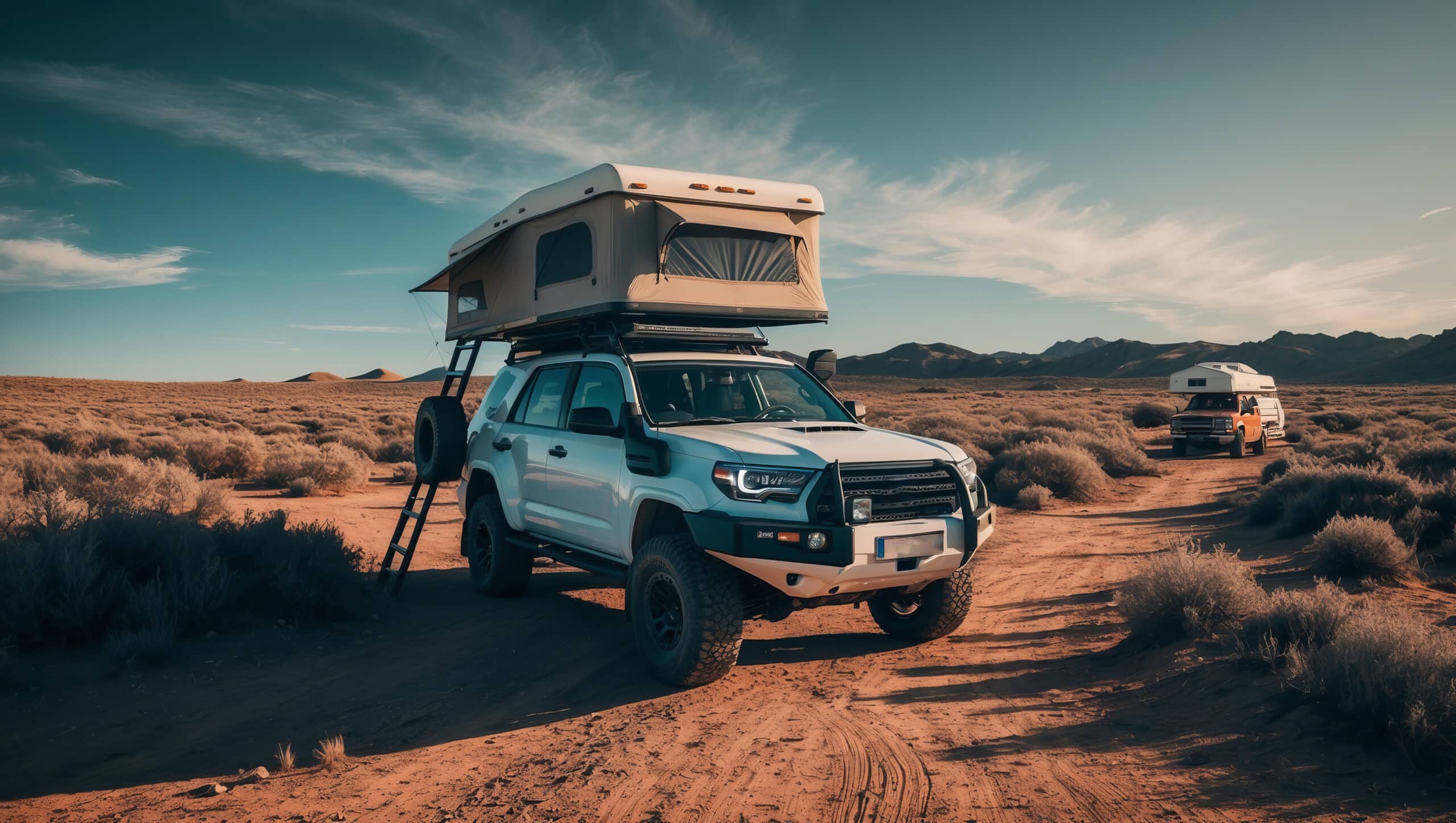
Free monthly entries to ALL giveaways
+1 every month
+5 every month
+10 every month
5%
125
150
350
100
100
50
Cancel membership anytime
Terms apply
apply

Written by
Admin
Published
August 20, 2024
Australia’s rugged landscapes are a playground for off-roading enthusiasts. From the unforgiving outback to coastal trails, Australia offers a diversity of terrains that appeal to adventurers seeking thrills beyond the tarmac. In recent years, the off-roading industry has seen significant changes, with new trends emerging that reshape how we approach this adventurous pastime.
The rise of technology has had a huge influence on off-roading. Vehicle manufacturers are now including advanced features such as Hill Descent Control, Terrain Response Systems, and Electronic Locking Differentials. These innovations enhance vehicle capability and safety, allowing drivers to tackle challenging terrain with increased confidence and control. There has been a significant uptake of GPS navigation systems designed for off-road use, with real-time updates on trail conditions.
Additionally, the use of drones has become more prevalent amongst the off-road community. Aerial devices can scout ahead for potential obstacles and trail conditions, providing crucial information to drivers before they navigate difficult sections of their journey.
Environmental sustainability has put electric and hybrid vehicles in the limelight, and the off-roading segment is no exception. Traditional internal combustion engines are slowly being sidelined by electric powertrains. For instance, the newly announced electric versions of classic off-roaders offer zero-emission expeditions without compromising on torque or power, critical for steep and rugged terrains.
According to data trends, sales of electric vehicles (EVs) in Australia, including those suitable for off-roading, are expected to increase significantly in the coming years. The Australian Electric Vehicle Market Study predicts that EVs will account for up to 60% of new vehicle sales by 2040. While the transition for off-roading vehicles may take slightly longer due to the additional demands of off-road driving, the shift towards electric is evident.
Off-roading is no longer just about the day trip. Overlanding, which combines off-roading with extended camping trips, has seen a rise in popularity. This holistic approach to adventure travel promotes sustainability and self-reliance, encouraging explorers to be eco-friendly and responsible.
Overlanding’s surge in popularity has led to an increase in the sales of aftermarket modifications and accessories tailored towards long-term travel. Roof-top tents, heavy-duty suspension components, and long-range fuel tanks are some of the popular products that have been embraced by the community. Furthermore, historical data from industry sales indicate a spike in four-wheel-drive vehicle modifications, with many Aussies kitting out their rides for extended remote expeditions.
Australia’s off-roading future is being shaped by technological advancements, environmental considerations, and the growth of overlanding. The trends highlighted above suggest that the industry will continue to evolve, offering off-roaders safer, more sustainable, and even more adventurous avenues to explore the Australian wilderness.
As technology progresses, the pull of the wild remains strong amongst Australians. It’s a sure indication that off-roading will keep its place as a cherished national pastime, just with an updated, more environment-friendly, and technologically savvy twist.